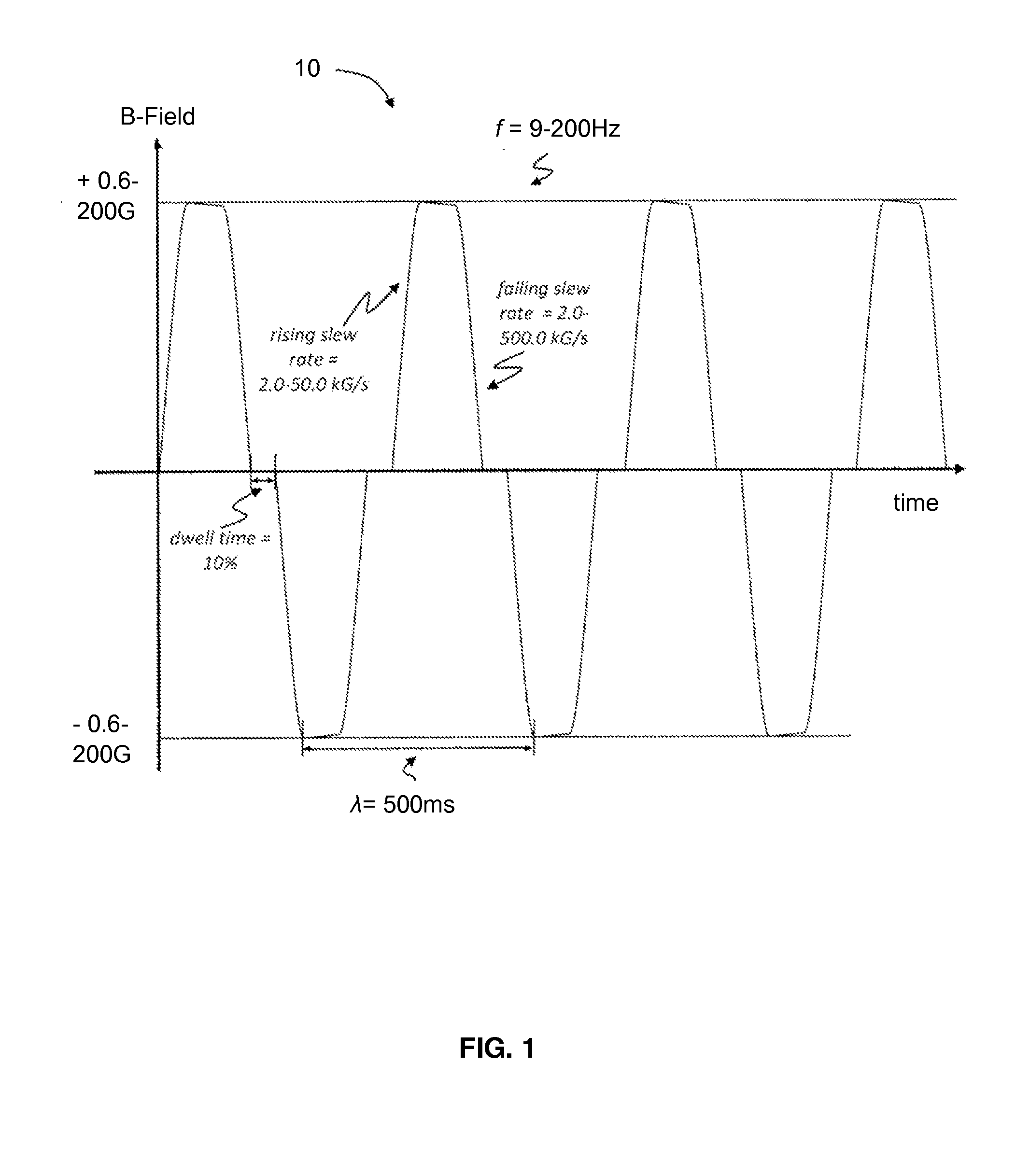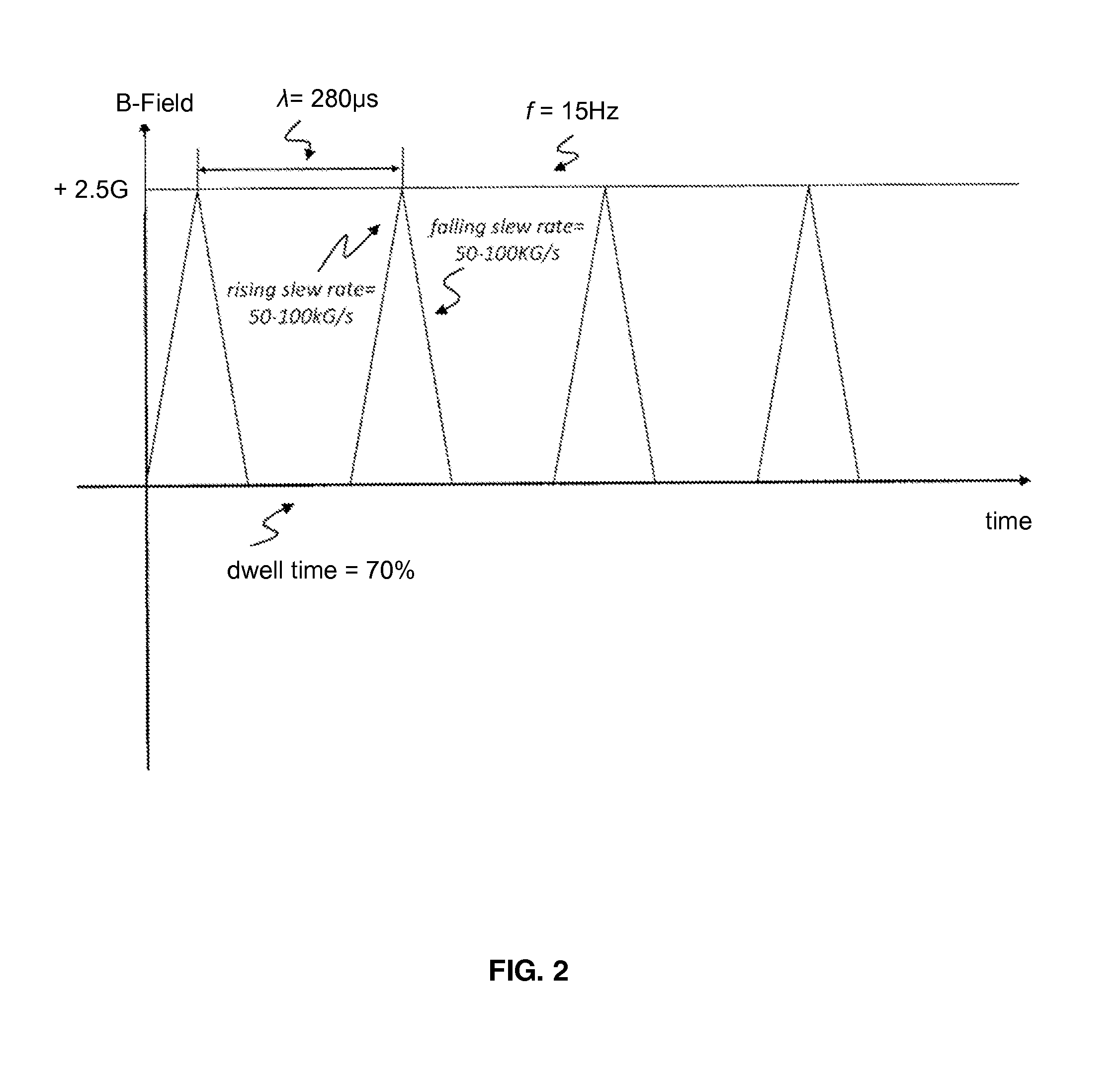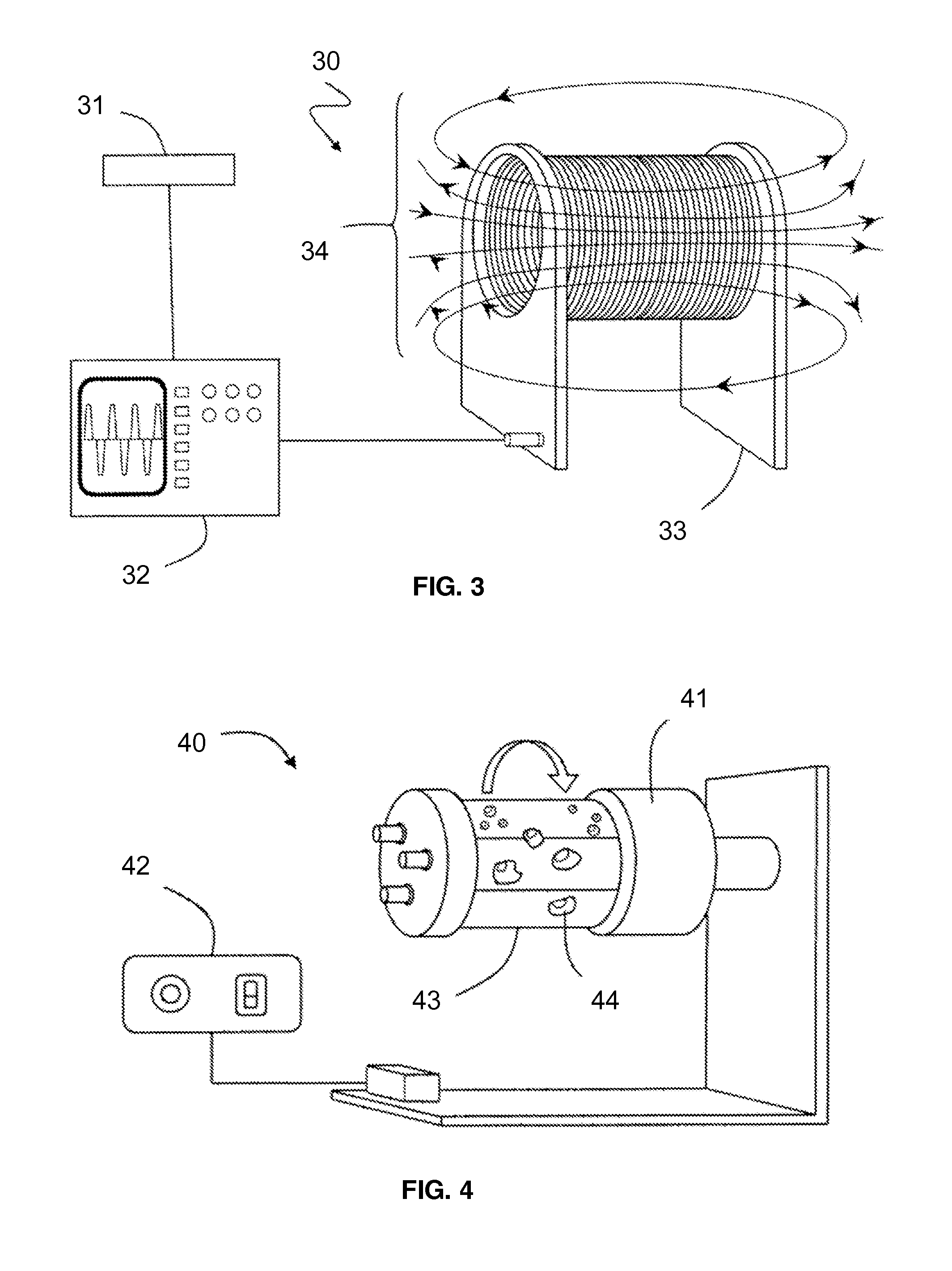Genetic Regulation of Bone and Cells by Electromagnetic Stimulation Fields and Uses thereof
a technology of electromagnetic stimulation and gene regulation, applied in the field of bioelectromechanics, biochemistry, tissue regeneration, electrical/wave energy enzyme treatment, etc., can solve the problems of limited cartilage repair ability, slow deposition of new cartilaginous matrix, and difficult healing of cartilage, so as to reduce muscle atrophy
- Summary
- Abstract
- Description
- Claims
- Application Information
AI Technical Summary
Benefits of technology
Problems solved by technology
Method used
Image
Examples
example 1
Human Chondrocytes
[0079]In a first experiment, a first set of HCH cell samples contained in at least 3 RWVs were exposed to a first time-varying stimulation field of predetermined profile comprised of substantially a biphasic, square wave with a frequency of about 10 Hz; a wavelength of about 500 ms; a rising slew rate between about 0.2 T / s (2.0 kG / s) to about 0.45 T / s (4.5 kG / s); a falling slew rate between about 0.45 T / s (4.5 kG / s) to about 1.5 T / s (15.5 kG / s); a dwell time of about 10% after each burst; a duty cycle of about 80% on and about 20% off; and a resultant B-Field magnitude of about 5.9 μT (0.059 G). The experiment was conducted at 10 Hz. For reference purposes, the frequency of Earth's geomagnetic field is 7.83 Hz, thus the experiment satisfies the criteria of being appreciably different from the background magnetic field. Exposure was continuous for the length of this experiment wherein said length was about 30 days or about 720 hours. Gene analysis comprising a fold ...
example 2
Human Chondrocytes
[0084]In a second experiment, a second set of HCH cell samples contained in at least 3 RWVs were exposed to a second time-varying stimulation field of predetermined profile comprised of substantially a biphasic, square wave with a frequency of about 10 Hz; a wavelength of about 500 ms; a rising slew rate between about 0.2 T / s (2.0 kG / s) to about 0.45 T / s (4.5 kG / s); a falling slew rate between about 0.45 T / s (4.5 kG / s) to about 1.55 T / s (15.5 kG / s); a dwell time of about 10% after each burst; a duty cycle of about 80% on and about 20% off; and a resultant B-Field magnitude of about 65 μT (0.65 G). A third set of HCH cell samples contained in at least 3 RWVs were also separately exposed to a third time-varying stimulation field of predetermined profile comprised of a substantially monophasic, delta wave with a frequency of about 15 Hz; a duty cycle of about 30% on and about 70% off; and a resultant B-Field magnitude of about 250 μT (2.5 G). The third time-varying st...
example 3
Human Osteoblasts
[0088]In a third experiment, a first set of HOB cell samples contained in at least 3 RWVs were exposed to substantially the same time-varying stimulation field profile as compared to the second time-varying stimulation field of predetermined profile in the second experiment. For clarity purposes, this stimulation field profile will be referred to as a fourth time-varying stimulation field of predetermined profile comprised of substantially a biphasic, square wave with a frequency of about 10 Hz; a wavelength of about 500 ms; a rising slew rate between about 0.2 T / s (2.0 kG / s) to about 0.45 T / s (4.5 kG / s); a falling slew rate between about 0.45 T / s (4.5 kG / s) to about 1.55 T / s (15.5 kG / s); a dwell time of about 10% after each burst; a duty cycle of about 80% on and about 20% off; and a resultant B-Field magnitude of about 65 μT (0.65 G). A second set of HOB cell samples contained in at least 3 RWVs were also separately exposed to substantially the same stimulation fi...
PUM
 Login to View More
Login to View More Abstract
Description
Claims
Application Information
 Login to View More
Login to View More - R&D
- Intellectual Property
- Life Sciences
- Materials
- Tech Scout
- Unparalleled Data Quality
- Higher Quality Content
- 60% Fewer Hallucinations
Browse by: Latest US Patents, China's latest patents, Technical Efficacy Thesaurus, Application Domain, Technology Topic, Popular Technical Reports.
© 2025 PatSnap. All rights reserved.Legal|Privacy policy|Modern Slavery Act Transparency Statement|Sitemap|About US| Contact US: help@patsnap.com



